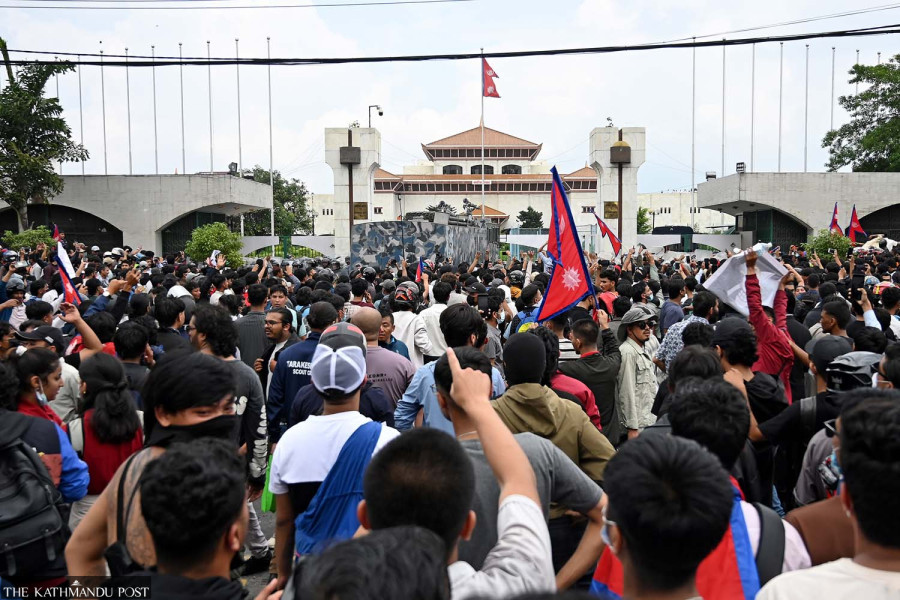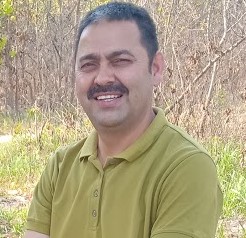Columns
Gen Z movement and direct democracy
Nepal now has the opportunity to turn today’s frustrations into tomorrow’s reforms.
Khim Lal Devkota
Nepal is again experiencing political upheaval, this time through the Gen-Z movement. Led largely by young people, it has rattled governance structures and forced the country to confront critical questions about democracy, accountability and the future of federalism. The movement, however, is more than just a protest. It channels frustration with corruption, exclusion and the stranglehold of entrenched elites. At its core, it carries a deeper demand: To make governance genuinely people-centred.
For decades, political parties have been dominated by a handful of senior leaders who control everything—from candidate selection to government policy—while sidelining grassroots voices. Party members are rarely permitted to speak or write freely, and dissent is punished. This suffocation wastes the energy of young leaders and builds resentment. Suppressed voices eventually erupt. The Gen-Z movement is a prime example of the explosion of long-silenced voices demanding recognition.
Notably, the movement is not merely about jobs or education, though those concerns remain. It is about space, recognition, transparency and participation. It demands an end to the monopoly of elites and the creation of a political culture where every citizen feels heard. This is not just youth frustration; it reflects the disillusionment of generations who have long been excluded from governance. A democracy that silences its youth is a democracy at risk.
The roots of frustration also lie in governance failures. Transparency and accountability have remained rhetoric rather than practice. Instead of ensuring fair distribution of resources, leaders funnelled projects into their own constituencies. Budgets became tools of patronage rather than instruments of service.
Direct democracy
While Nepal struggles with exclusion and centralised control, international experiences offer valuable lessons. Switzerland, in particular, provides one of the most inspiring examples of how direct democracy and federalism can sustain a strong democratic culture. Ordinary citizens in Switzerland are engaged in decision-making, and their leaders live modestly, seeing themselves as servants of the people rather than rulers above them.
In Switzerland, politics is not a full-time profession but a duty performed alongside one’s regular occupation. Teachers, doctors, lecturers, police officers and small business owners serve as members of parliament while continuing their primary professions. Members of the cantonal parliament come from diverse walks of life. Once inside parliament, everyone is equal, with no hierarchical distinction. After sessions, they return to their jobs and communities, resuming their normal responsibilities—not as MPs but as colleagues. This practice discourages arrogance and keeps politics grounded in service rather than power.
At the federal level, Switzerland prevents concentration of power through rotation. The President of the Confederation serves only one year before returning to a ministerial post, with another colleague assuming the presidency. Similarly, the Speaker of Parliament serves a short term before passing the responsibility. This reinforces collective leadership and prevents individuals from dominating the political stage.
Swiss modesty is also reflected in remuneration. For instance, in the Canton of Fribourg, members of the Grand Council receive only CHF 250–300 per session, not monthly salaries. It sends a clear message that politics is a service, not a career for enrichment.
At the municipal level, citizens are directly involved in approving budgets. Communes openly publish their financial plans, which are debated and often decided in town assemblies or through local referendums. This transparency builds trust and ownership among citizens.
The most distinctive feature of Swiss democracy is its system of direct democracy. Citizens are called to vote in multiple referendums each year, deciding on constitutional changes, laws and major policies. Since the 19th century, Switzerland has held hundreds of national referendums, with the Constitution amended around 200 times.
These rights are not just traditions but are constitutionally guaranteed. Articles 138–142 of the Swiss Constitution enshrine the people’s initiative and referendum powers. Through a popular initiative, 100,000 citizens can propose constitutional amendments, which must then be decided by a nationwide vote. A mandatory referendum is required for any constitutional change, demanding approval by both a majority of voters and cantons. In addition, optional referendums allow 50,000 citizens to challenge laws passed by parliament. These provisions legally embed people’s participation at the heart of governance.
Another important Swiss tradition is ‘Vernehmlassung’, or consultative federalism. Before passing laws, the federal government consults with cantons, municipalities and civil society organisations, collecting opinions and adjusting accordingly. This process creates ownership at every level and ensures smoother implementation. By contrast, in Nepal, laws are often drafted in Kathmandu and imposed on subnational levels without consultation, leading to resistance and weak implementation.
Historically, Switzerland’s tradition of direct democracy can be traced back to the ‘Landsgemeinde’—open-air assemblies in mountain communities dating to the 13th century. Citizens gathered to debate laws and elect officials, a practice that still survives in some cantons today. This medieval tradition evolved into the modern referendum system, weaving participation into the very fabric of Swiss politics.
The lesson for Nepal is clear: Governance must be rooted in citizen participation. Laws should be drafted through consultation, budgets must reflect grassroots priorities, and leaders must live modestly, embodying integrity. Switzerland proves that transparency and accountability are not abstract ideals but daily practices embedded in law and culture.
Nepal at a crossroads
Nepal now stands at a critical crossroads. The Gen-Z movement has exposed hard truths about corruption, centralisation and exclusion, but it also presents an opportunity to renew democracy, strengthen federalism and rebuild public trust. The demands of young citizens—fairness, accountability, participation—are not extreme. They are the essence of every functioning democracy. Ignoring them risks unrest; listening to them opens the path to reform.
The Gen-Z movement has already reshaped Nepal’s political landscape. A new government has been formed under former Chief Justice Sushila Karki as Prime Minister, and elections for the House of Representatives are scheduled for March 5, 2026. Let us hope they are held on time and usher in a new generation of MPs whose voices and energy can drive constitutional amendments and meaningful reforms.
If Nepal embraces genuine consultation in lawmaking, fair budgeting and citizen participation in governance, democracy will not just endure but thrive. Federalism will no longer be abstract but lived, owned by the people. Above all, leaders must lead by example, embracing simplicity, integrity and service.
The Gen-Z movement and the Swiss model of direct democracy converge on the same truth: Democracy is strongest when people’s voices are not just heard but acted upon. Nepal now has the opportunity to turn today’s frustrations into tomorrow’s reforms. The choice lies with its leaders, and the time to act is now.




 11.12°C Kathmandu
11.12°C Kathmandu















